3 Secrets to Healthy Communication

#LeadandLift | Episode 38 | Ann Visser
Let’s face it. We can all use some help and guidance in improving our communication. We communicate with friends, family, business associates, clients… the list goes on because we communicate with so many people around us.
But are we communicating in a way that we are truly heard?
Ann Visser, Co-Founder of 4Better4ever and Certified John Maxwell coach, speaker, and trainer, has 20 years of experience equipping individuals and organizations with the tools to communicate clearly and build close connections because effective communication is essential for every healthy relationship. She’s here today to share 3 secrets to healthy communication with added tips and free tools to get you started on a journey beginning with self-awareness and moving forward into having effective communication with those around you.
When we can communicate clearly and effectively what it is we really want, what it is we are really concerned about, how we’re truly feeling, then the other person can hear it with an understanding heart.
Ann Visser’s Journey of Discovery
Ann’s focus on providing guidance for healthy communication began because of a lack of healthy communication in her own marriage. She married her high school sweetheart and they were crazy in love, but then life circumstances — which we can all relate to — caught up with them. At the beginning of their marriage, her husband started farming and experienced many challenges not only in farming but also in their relationship. He would come home frustrated causing Ann to wonder what she did, but it wasn’t really about her at all. Neither she nor her husband really knew what was going on or how to communicate what was happening inside of them.
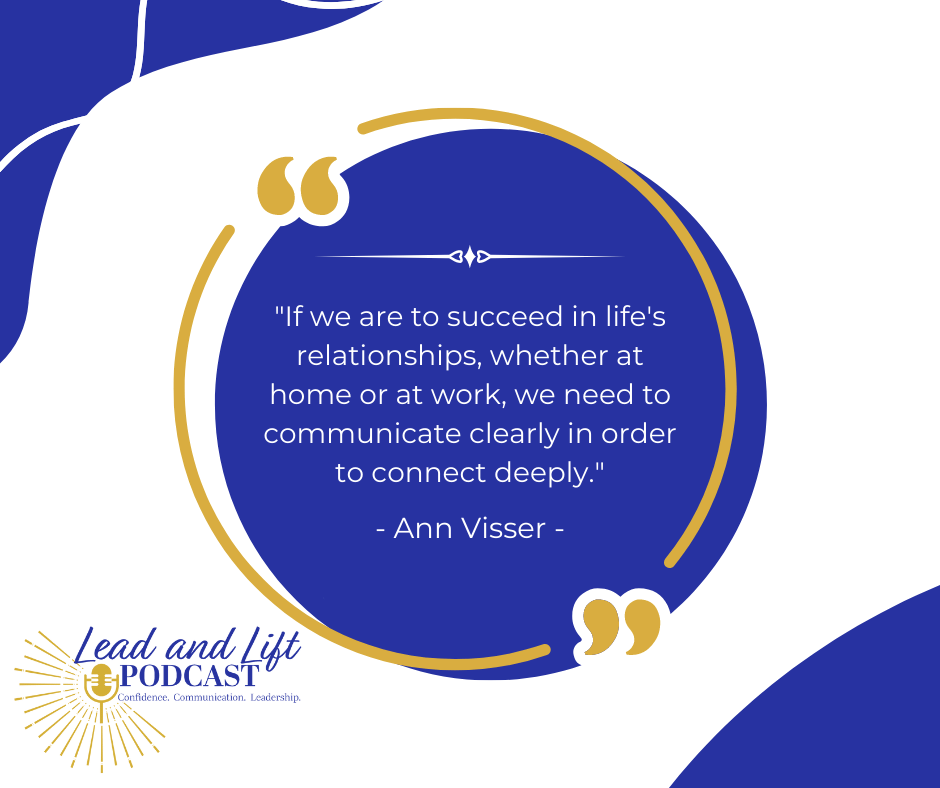
Fast-forwarding through their life, they had 5 children in 6 years creating a busy and crazy environment for them. The crazy in love couple was drifting apart until one particular night. It was supposed to be a date night, and as they were sitting in the farm truck outside their favorite restaurant, Ann looked at her husband and said, “I can’t do this anymore.”
Her husband’s response was that of panic asking, “What do you mean you can’t do this anymore?”
Ann opened up her communication and told him she could no longer do her marriage the way they had been. She further explained to him how they just kept hurting each other over and over again, were not resolving anything, and were just going around and around the same old thing. She told him she was tired and so hurt.
She spoke from her heart, and he really heard her heart that night.
For the first time in a long time, he shared his heart with her too. They needed to close the emotional distance that had crept into their marriage. They recommitted to each other to get the help they needed.
This pivotal conversation with her husband started them on a journey of personal growth to learn how to be better partners and better people. A big part of the transformation was learning how to communicate more effectively. Effective communication is applicable not only to spousal relationships but also to business and work relationships.
Ann Visser’s #1: Secret for How to Develop Healthy Communication
In that pivotal conversation Ann had with her husband, they stumbled across the first secret of communication: If what you’re doing isn’t working, try something different.
It’s so simple right, but how many of us just keep doing the same old thing whether at work or at home. She often finds herself doing that as well. We just keep doing the same old thing.
A common problem she’s approached with by women is that they say they’ve tried everything, and nothing is working. They’ll say, “he’s just not listening.”
After learning what the woman is really doing, it generally turns out that the woman is talking and talking and talking some more thinking she’s communicating, but in reality, she’s not communicating effectively in a way he truly hears her.
What the woman hasn’t tried is something different, like listening or just being quiet to hear his heart. Sometimes the woman needs to try speaking concisely about what she really needs or how she’s really feeling.
Ann speaks loud and clear to me, and I’m sure many people can resonate with this story because they get married and think okay, I’m married now. I’m an adult. Things should be great. Then you have this person there with you constantly, and they’re not like you. They’re different yet you expect them to be exactly like you. So when you say something you wonder, why didn’t he get it? Why isn’t he letting go? Why is he still thinking? Does he not care? This happens all the time and boils down to communication.
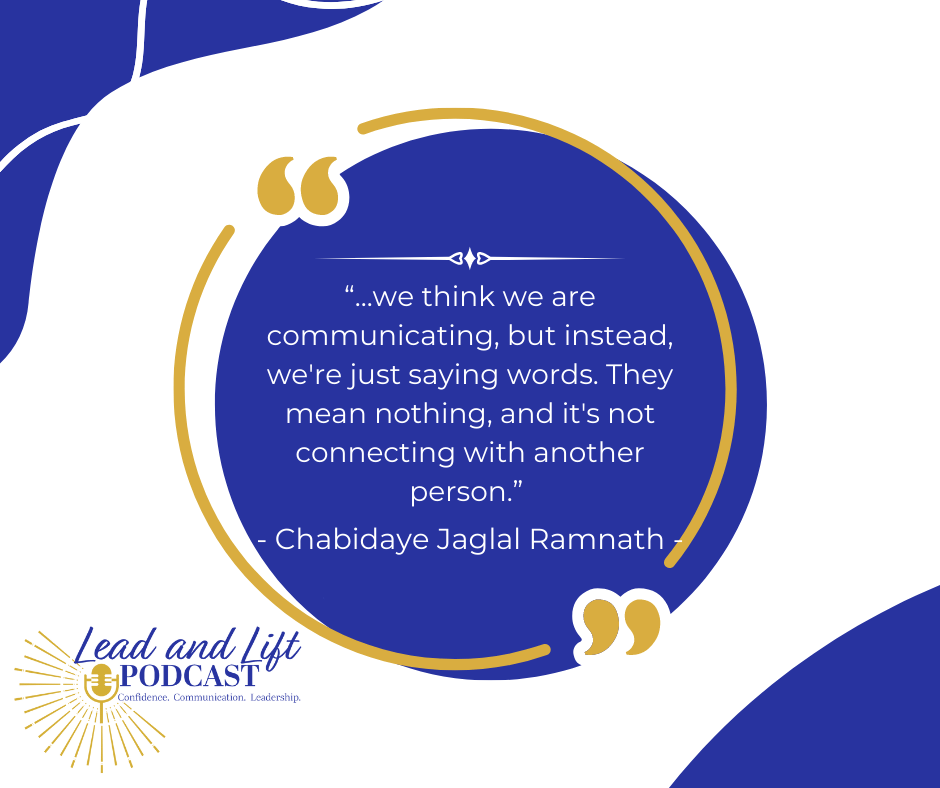
According to Ann, one of the hardest things in the world is to truly listen to understand as opposed to listening to respond. Just to hold back on the voice and the words, to be able to truly hear what the other person is saying, is so powerful. It helps to have the other person feel you really do care about them.
I couldn’t agree more. Listening skills are so critical, and as adults, we want to make our personal and business relationships better. Yet, listening is not something they teach you in school.
But when we can communicate in a concise way and other people can understand where we are, then we can get better results in feeling connected. We can’t get anything done if we’re not connected.
Ann Visser: How to Avoid Resentment & Deal with a Bad Attitude
When people allow things to build up over time, they inevitably become resentful at home and at work. People just get so resentful. To avoid allowing the build-up to transform into resentment, you must keep short accounts.
Cindy Wright, Founder of Marriage Missions International, describes short accounts in this way: We have learned to keep shorter accounts. It doesn’t mean we keep score so much as that we both make an effort to repair the tension faster and work through issues thoroughly.
Ann further explains that Cindy is saying to not let problems stack up because when we let problems stack up, it changes our attitude toward our people and creates a mood in the home. The mood can be very critical and very resentful changing the way we connect with our people.
Communication is really all about connection.
If you’re already feeling resentful towards another person, it’s most likely from having a bad attitude. A bad attitude can have more to do with you than it has to do with your people. If nursed long enough, a bad attitude becomes full-on resentment, and resentment takes the life and energy out of relationships and connections.
But don’t worry! You can heal your resentment with a 3-minute exercise. To help you deal with a bad attitude that’s turned into resentment, take a piece of paper and write out everything good about the person you resent. Make sure to put the paper in a place where you’ll see it every day and be sure to read it every day.
Ann did this when she was in a critical place with her husband. She wrote out everything good about him — even had to flip the page over to keep writing. She saw it and read it every day. It was so powerful! It changed her attitude and the way she saw him. She had to unlearn first so she could follow with relearning.
She knew her attitude had changed when one day he called home saying he was going to be late for dinner and then hung up the phone. He was kind of cranky. He doesn’t normally do that. It’s not who he is or what he does.
Ann’s immediate thought was, boy, you’re having a really bad day. She did a happy dance right there because she knew that her attitude toward him had changed. Before working on healing her resentment she would have thought, what is his problem and why is he being so cranky with me?
Why does this 3-minute exercise work?
Well, our focus determines our attitude and our mindset toward another person. What we focus on grows. You have more choice than you realize. If you focus on everything wrong about another person, that’s going to grow. If you focus on everything good about the person, that’s going to grow.
I love the exercise Ann mentions because while she applied it to marriage, I can see this being applied in the corporate space. There’s always someone on the team who makes you think: Oh my god, there she goes again. She’s doing that thing again or He’s saying that thing again. But if we work to shift our focus on the positive that person contributes and the good things about them, we’re able to see past the resentment and consider it’s not just about us.
Ann Visser’s Secret #2: How to Better Understand Differences between Men & Women
According to the work of Dr. Steven Stosny & Patricia Love, men and women have weaknesses, but they’re not the same. Men struggle with shame, and women struggle with fear. A man’s shame looks like a fear of failing. Failing to understand, to help, to fix something, or to be successful in his work. The shame of not being able to communicate what he really wants or what he really needs. A woman’s fear is that of being alone.
If a woman is feeling really lonely and afraid, the man in front of her is likely feeling equal amounts of shame and vice versa.
Dr. Stosny and Patricia Love say men live on the edge of shame. Women live on the edge of a fear of being alone. Recognizing the fear and the shame is the first step towards awareness. Awareness is so important in order to be able to deal with it and to have some compassion for both your own vulnerability and the man’s vulnerability. As John Maxwell says, “People don’t care how much you know until they know how much you care.” That type of compassion is key to stepping into each other’s vulnerability with care.
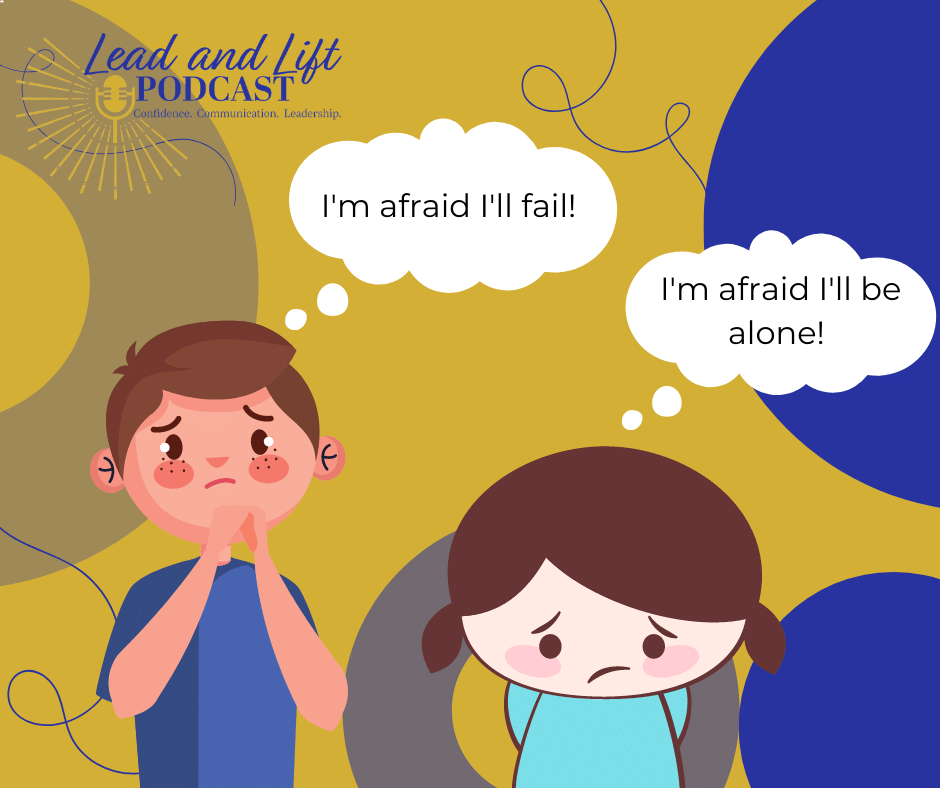
Ann found this to be true from her previously spoken about experience in her own marriage. She was feeling so alone in her marriage at the time, but she didn’t know how to communicate that loneliness and couldn’t express what was happening inside of her because she didn’t know what it was.
Instead of effectively communicating her feelings, it came out like, “You work too much!” and “You’re never home with me and the kids!”. But what Ann was really feeling was alone. Alone with raising their kids through really busy seasons, alone in housework, alone in their dreams. This caused her to feel like the marriage was all about him, but of course, it wasn’t. It wasn’t a toxic relationship, it was just a difficult one where they needed to learn skills.
So remember, if a woman is feeling afraid and lonely, chances are high that it’s a cue for her that the man in front of her is feeling that shame. Then the woman and man are triggering each other, and Ann truly believes this is why people fight. They’re trying to ease the woman’s fear and the shame for a man, which unfortunately often results in the man getting really angry because it helps to bring down the shame he’s feeling.
This difference between the weaknesses of men and women can make communication difficult, and this I understand and feel to be very powerful information to have. Ann spoke of people wanting to be a part of a team because if they see each other as a team and are able to work through their feelings together, then together they can succeed. But, I can see how if people are not creating a team environment or feeling like they’re in a team environment, they can be pointing fingers at each other. And when you mix in what Ann says about fear of being alone, failing, and shame, it’s an unstable environment.
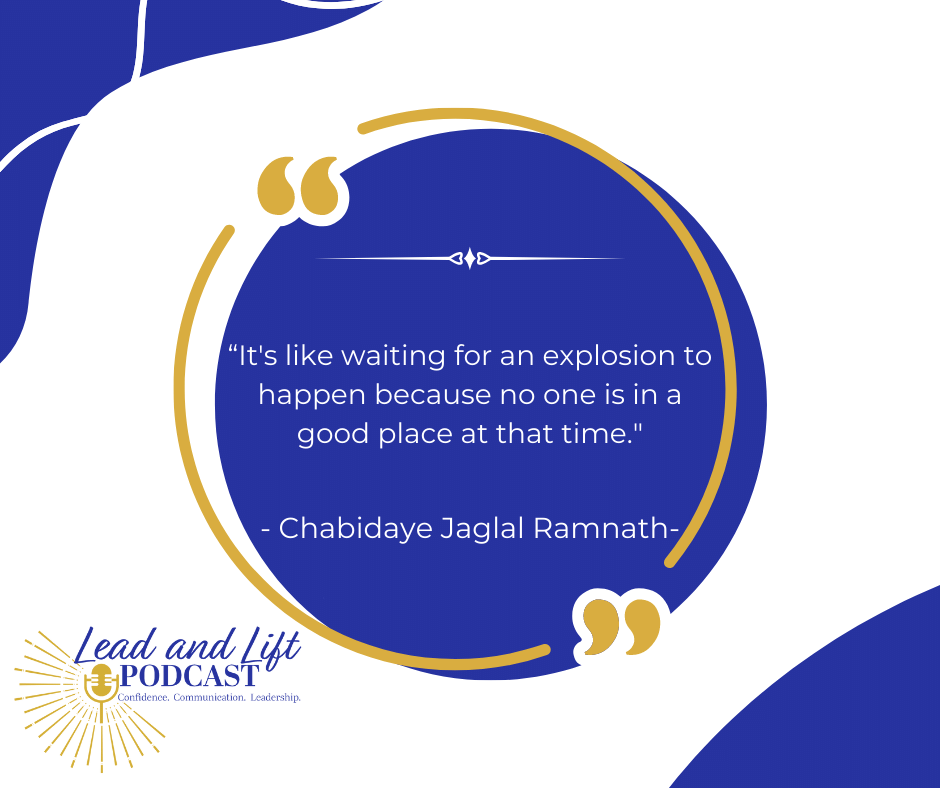
Ann Visser’s Secret #3: Find and Use Your True Voice
The heading says it all, but it’s worth repeating. Use your True Voice.
This secret is really important to Ann. A number of years ago, she attended a leadership conference in support of her husband. She saw him as a leader. She was standing back, not using her voice, as she was used to letting other people lead. But after that conference, everything changed for her.
She heard John Maxwell say, “Leadership is influence. Nothing more, nothing less.” We’ve heard that before, haven’t we? If you missed out, check out Lead and Lift’s podcast with Dr. Jacqueline Howard What is Leadership?
For Ann, her whole perspective shifted. She thought how she was already a mentor, a church leader, a trainer in the jail system, and was working with addicts which all meant she had influence making her a leader. She went home from that conference with a whole new picture of who she was. She was no longer quiet, unimportant Ann hiding in the background. She became Ann, responsible for speaking into her children’s lives, Co-Founder of 4Better4ever, trainer in the jail system, and marriage mentor.
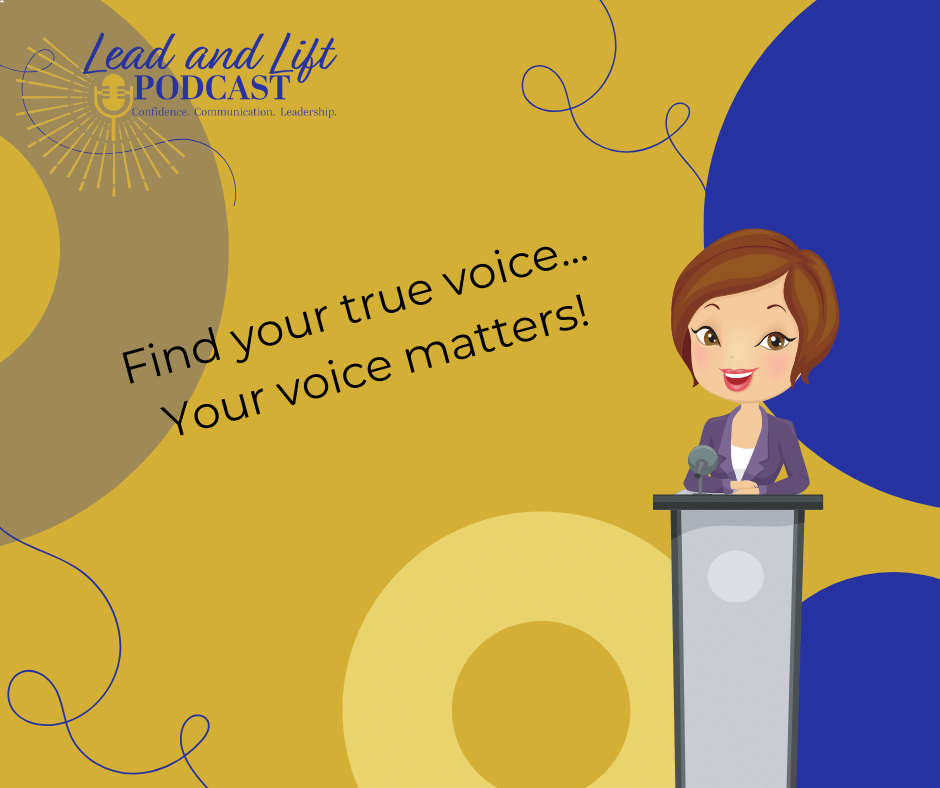
When her perspective shifted, it propelled her forward to use her true voice in a whole new way she’d never tried before. It gave her permission to step into the responsibilities she already had. The more she used her voice, the more she learned her voice matters, her story matters, and her children, husband, and clients all needed to hear her voice. She could no longer hide.
So Ann challenges you to take responsibility and learn your own voice.
Ask yourself. What is authentic to me?
Know yourself. Join the journey of personal growth to learn more about yourself.
Be okay with your own true voice. Take a risk in the vulnerability of speaking out and saying who you are and telling your story.
Let go of what other people think of your voice. This allows you to be free to use your voice.
It’s so incredibly valuable for everyone to share their story and their true voice, in an authentic and true way.
How to Start Your Journey towards Self-Awareness and Healthy Communication
Like Ann, and so many others, John Maxwell’s quote about leadership being influence shifted my perspective. After reading that in his book, I enhanced my self-awareness as I realized, I am a leader.
That self-awareness made me look at other people differently because I knew I had influence and with that comes power and authority. It also made me check myself and want to be better because my little guys look up to me as a leader. My spouse looks to me as a leader. People in the community, amongst my peers, and people I may not even personally know, look to me as a leader.
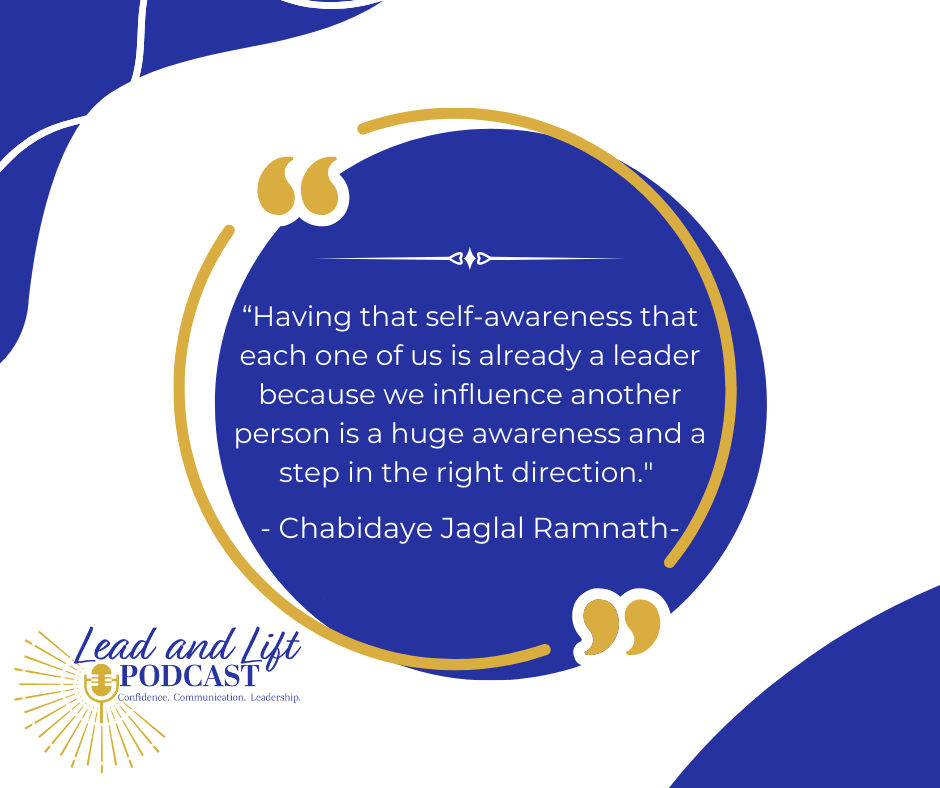
So think, are you a leader to?
To help kickstart your journey towards self-awareness, Ann has created a FREE 7-Day Clarity Journal to help you identify your inner self so you can better manage your world outside of you. This journal is a digital download available in our show notes here.
She also offers a powerful exercise in self-awareness. Take a sheet of paper and write about what you are like to live with. Include the good, the bad, and the ugly. Then ask three people to write out the same paragraph for you. Have them write about what you are like to live with. Ask them to include the good, the bad, and the ugly, but make sure they include the good. Then compare notes and see where you are. You’ll learn the truth about who you are. We all have blind spots, and it’s a great exercise to learn who we are, how we’re communicating, and how we’re connecting with the people all around us.
Leave a 5-Star Rating & Positive Review on Apple Podcasts!
This helps me support more people - just like you- gain more joy and fulfillment in their business and personal life.
Links mentioned in this episode:
Links mentioned in this episode:
Stay connected with the latest episodes via email
Expert interviews, actionable takeaways and behind-the-scenes Leadership, Communication and Confidence secrets from experts and so much more, delivered to your inbox weekly.
Don't worry, your information will not be shared.

